Over 30 years of anarchist writing from Ireland listed under hundreds of topics
International
After Genoa - Bashing the Black Bloc?
.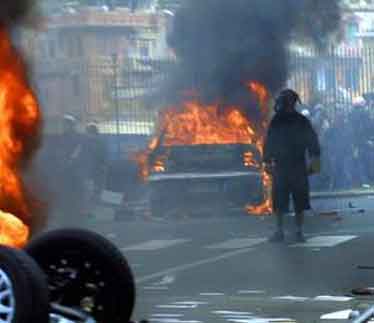 In the wake of the G8 protests in Genoa, Ray Cunningham, who took part in the demonstrations there, looks at the future for the Black Bloc and the 'anti-globalisation' movement (Pic: Black bloc in Genoa)
In the wake of the G8 protests in Genoa, Ray Cunningham, who took part in the demonstrations there, looks at the future for the Black Bloc and the 'anti-globalisation' movement (Pic: Black bloc in Genoa)
Biotechnology - confusion, fear and protest
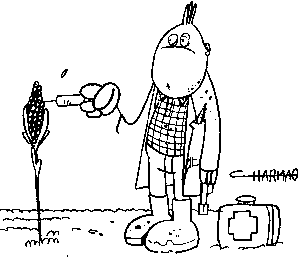 On the 26th of June 2000 researchers announced that they had finally created a rough map of the human genome - almost 3 billion DNA letters. In December 2000 British MPs voted to allow scientists to collect cells from human embryos and to substitute a nuclei from an adult cell into embryo cells for research purposes. These sorts of developments leave many people confused and frightened. The BSE, and Foot and Mouth, crises have left people wondering are scientists and governments to be trusted in these areas. There has been a consumer revolt against Genetically Altered foods and activists have rushed to pull up genetically altered crops. So what's all this about? Is it any use to anyone or just another example of big science and big business going mad at our expense?
On the 26th of June 2000 researchers announced that they had finally created a rough map of the human genome - almost 3 billion DNA letters. In December 2000 British MPs voted to allow scientists to collect cells from human embryos and to substitute a nuclei from an adult cell into embryo cells for research purposes. These sorts of developments leave many people confused and frightened. The BSE, and Foot and Mouth, crises have left people wondering are scientists and governments to be trusted in these areas. There has been a consumer revolt against Genetically Altered foods and activists have rushed to pull up genetically altered crops. So what's all this about? Is it any use to anyone or just another example of big science and big business going mad at our expense?
Revolutionary Anarchism & the Anti-Globalization Movement
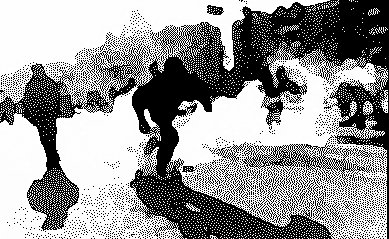
Riot police battling youth. Armed forces locking down a major American city. Tens of thousands under anti-capitalist banners. Western youth and workers physically battling the WTO and imperialism. These potent images of the 'battle of Seattle', November 30, 1999, were seared into the minds of militants the world over, inspiring millions upon millions fighting against the class war from above that some call 'globalization'. Followed by further mass protests in Washington and Davos, and two massive international coordinated actions on May 1, 2000 and September 26, 2000, Seattle marked, by any measure, an important turning point for the global working class and peasantry.
Anarchists and the right to choose
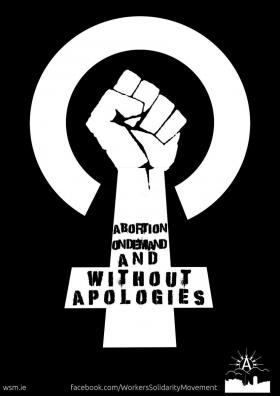 We envisage an anarchist society as a society where people are free to make choices about their own lives. We picture a society where decisions are made at the lowest effective level. For women, this includes the decision whether or not to become pregnant, whether or not to remain pregnant, whether or not to have children.
We envisage an anarchist society as a society where people are free to make choices about their own lives. We picture a society where decisions are made at the lowest effective level. For women, this includes the decision whether or not to become pregnant, whether or not to remain pregnant, whether or not to have children.
About the Organizational Platform of the General Union of Anarchists
Anarchists are constantly thinking about how society is and how it could be. We strive towards the ideal of a free and democratic society. We know that, in order to get there, it will be necessary to tear down the present authoritarian system of government. Our struggle for freedom throws up many areas of controversy and debate. One of these has always been, and always will be, how do we get to a revolution? How do we organise for change? An important contribution to this debate was the Organisational Platform of the Libertarian Communists*, a document which was written in 1926 by a group of exiled Russian and Ukrainian anarchists, and which still has much to offer to today's debates around the question of organisation.
Racism and the Class struggle
Racial oppression remains a defining feature of the modern capitalist world. It is manifest most spectacularly in violent attacks on immigrants and minorities by fascist gangs. More important to the fate of these communities has been the systematic and increasing discrimination by capitalist states, manifest in attacks on the rights of immigrants, cuts in welfare services, and racist police and court systems. In this article, the South African anarchist organisation, the WSF, puts forward its view that the fight against racism and the class-struggle are inextricably linked.
Anarchism, militarism and civil war - Can you have an anarchist army? - Looking at the Makhnovist Movement
AS ANARCHISTS believe the bosses will resist a revolution, it follows that we accept the need for armed force to defend the revolution. But anarchists also oppose militarism, that includes standing armies controlled by the state with officers who have special privileges like extra rations, better quarters, saluting, etc. So what alternative do anarchists propose? [Greek translation]
Announcing the Anarchist Platform email list
Regular readers of Workers Solidarity outside Ireland who find they agree with a lot of what we say and have email should consider subscribing to the Anarchist Platform email list. The announcement below which is being widely circulated on the internet explains what the list is and how to join it. (2011 Note - the information here is all out of date and presented because this announcement is of historic interest as it lead to the formation of Anarkismo.net - see the end for current links).
The consequences of the fall of the Berlin wall & Eastern European dictatorships
WHAT WAS ANYONE to make of the fact that students began hanging pears from apple trees on the morning of December 20th 1990 at Bucharest University? For, early that same morning, workers were bussed from all over Romania to attend a 'spontaneous' demonstration in front of Party buildings in support of the dictator, Nicolai Ceausescu. The students at Bucharest University, aware of the real mood in the country, were satirising a famous speech made by Ceausescu to the effect that Stalinist party policy in Romania would only change when 'pears began to grow from apple trees' - the students proved to be singularly accurate with their timing.
Mujeres Libres - Free Women of Spain
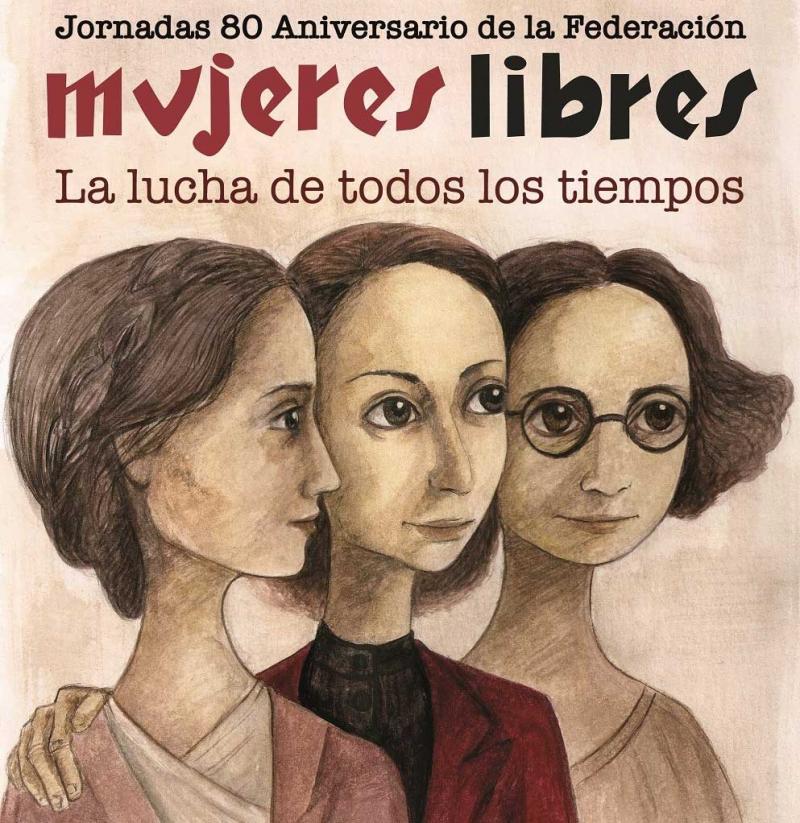 Conditions for the vast majority of people in Spain in the 1920s and 1930s were appalling. For women they were especially bad. There were extreme gender divisions. Most women were economically dependent on men. Household chores and childcare were exclusively women's domain. In both countryside and city women's wages were lower than men's. For example the average daily wage of a male agricultural labourer was 3 pesetas while a women got just half this, for working from dawn to dusk.
Conditions for the vast majority of people in Spain in the 1920s and 1930s were appalling. For women they were especially bad. There were extreme gender divisions. Most women were economically dependent on men. Household chores and childcare were exclusively women's domain. In both countryside and city women's wages were lower than men's. For example the average daily wage of a male agricultural labourer was 3 pesetas while a women got just half this, for working from dawn to dusk.

